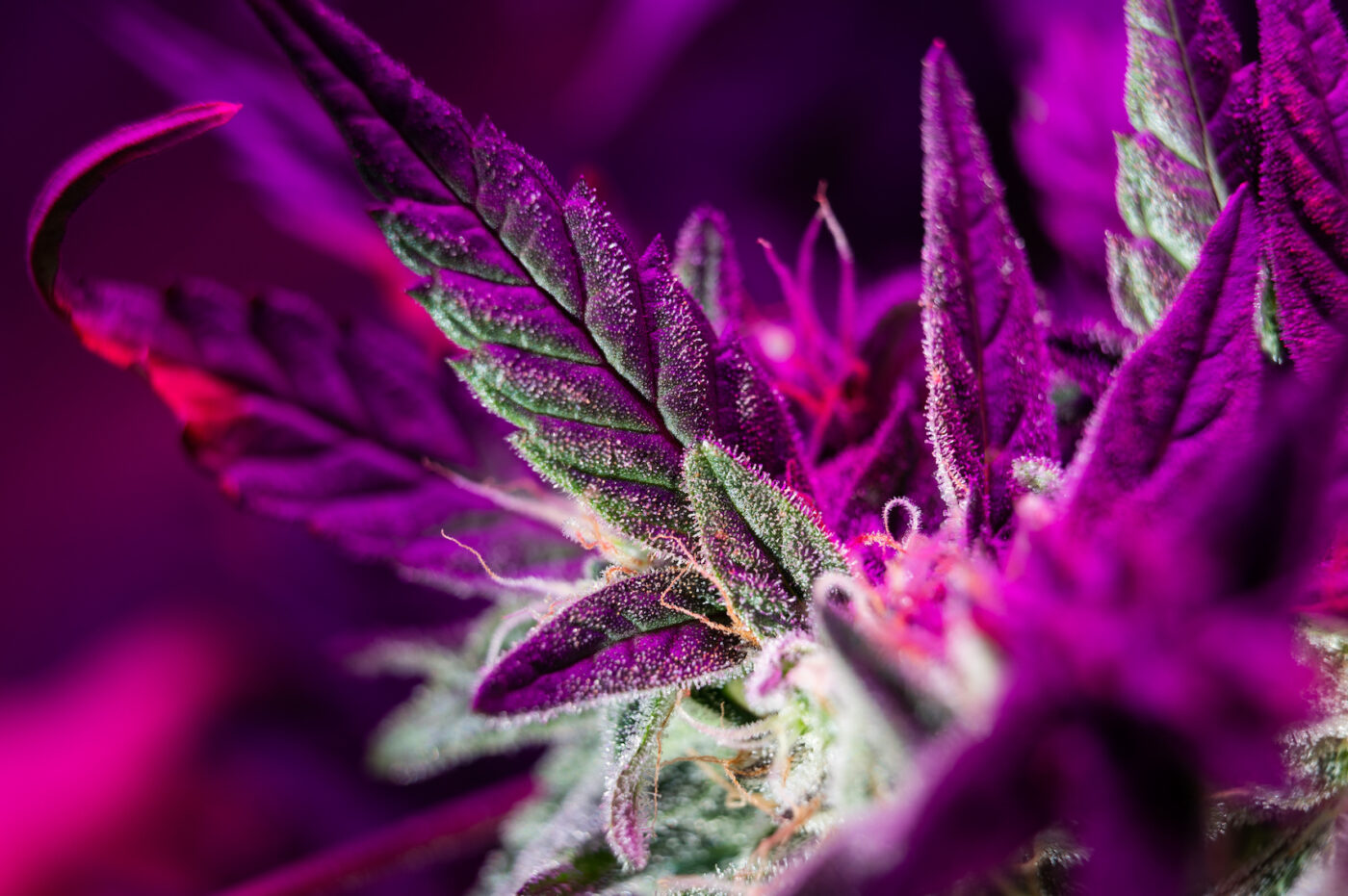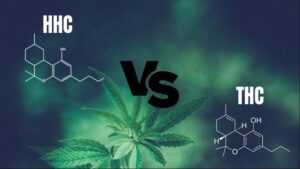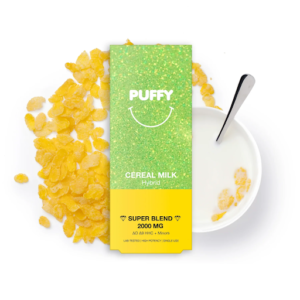
HHC vs Delta 8
The terms HHC and Delta 8 is very famous on the internet these days, especially if you’re an avid smoker, and if it’s your first time hearing about these terms, you need to know what they are.
To help you out in having a better understand about HHC and Delta 9 THC, we have listed down all the things that you need to know about them. From what they are to what their benefits are along with side effects, we have written down every single thing for you!
Here are some of the most important things that you need to know about HHC and Delta 8:
What Is Delta 8 THC?
Delta 8 THC is a psychoactive cannabinoid found in the cannabis plant. It is one of the many different THC isomers present in the plant, and it is known for producing a milder, less intense high compared to delta 9 THC, which is the most common form of THC found in cannabis.
Delta 8 THC is believed to have a number of potential therapeutic benefits, including pain relief, anti-nausea effects, and appetite stimulation. However, it is important to note that Delta 8 THC is not legal in all areas, and its use and possession may be restricted by law. Additionally, the long-term effects of Delta 8 THC on the body and brain are not yet fully understood, and more research is needed to understand its potential risks and benefits fully.
What Are The Health Benefits Of Delta 8?
There is limited scientific research on the specific health benefits of Delta 8 THC, and more research is needed to understand its potential therapeutic effects fully.
However, some people believe that Delta 8 THC may have a number of potential health benefits, which include:
Pain relief: Some people use Delta 8 THC to help manage chronic pain and inflammation.
Anti-nausea effects: Delta 8 THC may be helpful in reducing nausea and vomiting, and it is sometimes used to treat the side effects of chemotherapy.
Appetite stimulation: Delta 8 THC may increase appetite and help with weight gain in people who have a poor appetite due to illness or other factors.
Anxiety reduction: Some people use Delta 8 THC to help reduce anxiety and stress.
It is important to note that the potential health benefits of Delta 8 THC are largely unproven, and more research is needed to understand its effects on the body fully.
Delta 8 THC may also have negative side effects, including dry mouth, dizziness, and impaired cognitive function, and it may interact with certain medications. As with any substance, it is important to use caution and consult a healthcare professional before using Delta 8 THC for medicinal purposes.
What Are The Benefits Of Consuming Delta 8 THC?
Delta-8 tetrahydrocannabinol (Delta-8 THC) is a psychoactive substance found in the Cannabis sativa plant, of which marijuana and hemp are two varieties. Delta-8 THC is one of over 100 cannabinoids produced naturally by the cannabis plant but is not found in significant amounts in the cannabis plant. As a result, concentrated amounts of delta-8 THC are typically manufactured from hemp-derived cannabidiol (CBD).
Potential health benefits of Delta-8 THC include pain relief, anxiety relief, relaxation, and happiness. It may also have cancer-fighting properties, but more evidence is needed to draw concrete conclusions. Additionally, Delta-8 THC has high bioavailability, meaning it can be more easily broken down and absorbed by the body. This could lead to fuller, more potent effects.
What Is HHC?
Hexahydrocannabinol (HHC) is a naturally occurring phytocannabinoid found in the cannabis plant and is considered a minor cannabinoid. HHC is a hydrogenated derivative of delta-8 and delta-9 tetrahydrocannabinol (THC). Although it is naturally found in Cannabis sativa in small amounts, it can be produced synthetically by hydrogenation (the addition of molecular hydrogen to a double bond) of cannabis extracts.
HHC can also be made from cannabidiol (CBD). Although there is not a lot of research or data on HHC, people have reported that it has euphoric effects similar to THC, making it a psychoactive cannabinoid. Due to its similarity to THC, HHC may have anti-inflammatory, anti-emetic (anti-nausea and vomiting), and appetite-stimulating properties, making it potentially very useful for managing chronic pain, insomnia, and the side effects of chemotherapy.
What Are The Side Effects Of HHC?
The potential side effects of HHC include anxiety or paranoia, dry mouth, dry or red eyes, hunger (also known as the munchies), insomnia, and heart palpitations. HHC may also cause tachycardia (rapid heartbeat), nausea, increased appetite, and digestive disorders.
There is not enough scientific evidence to determine the long-term effects of HHC, so it is best to use caution and speak to a doctor before using HHC.
What Are The Benefits Of HHC?
The potential benefits of HHC include pain relief, anxiety relief, relaxation, and happiness. HHC may also have cancer-fighting properties, but more evidence is needed to draw concrete conclusions. HHC also has high bioavailability, meaning it can be more easily broken down and absorbed by the body. This could lead to fuller, more potent effects.
Delta 8 vs HHC
Delta-8-tetrahydrocannabinol (also known as delta-8 THC or simply delta-8) is a cannabinoid found in the cannabis plant. It is one of the many different cannabinoids that can be extracted from the plant and has a similar chemical structure to delta-9 THC, the psychoactive compound found in marijuana that is responsible for its psychological effects. Delta-8 THC is less potent than delta-9 THC and is thought to have a less psychoactive effect on the user, although it can still produce a high.
On the other hand, Hexahydrocannabinol (also known as THC) is the psychoactive compound found in the cannabis plant that is responsible for the plant’s psychological effects. THC is the primary cannabinoid found in marijuana and is the compound most commonly associated with the plant’s psychoactive effects. THC works by binding to cannabinoid receptors in the brain, which leads to the release of neurotransmitters that can alter brain function and produce various psychological effects, including altered mood, altered perception, and changes in behavior.
For a quick comparison, Delta 8 THC and Hexahydrocannabinol (HHC) are both cannabinoids derived from the hemp plant, but they differ in terms of their potency and effects. Delta 8 THC is a more potent cannabinoid with a stronger psychoactive effect, while HHC is milder with a more subtle effect. Both compounds offer users a range of potential health benefits, such as pain relief, anxiety relief, relaxation, and happiness. Delta 8 THC has a higher bioavailability and is more easily absorbed by the body, which can lead to fuller and more potent effects. HHC naturally occurs in trace concentrations in the hemp plant, but it is also possible to synthesize it from CBD. Both compounds are federally legal as long as their THC content is below 0.3%, but they may still be subject to state laws.
How To Purchase The Best HHC Or Delta 8 Consumables
Here are some of the many things that you need to do so you can purchase the best HHC or Delta 8 consumables:
- Research the different types of marijuana consumables and become familiar with their effects.
- Decide which type of marijuana consumable you would like to buy.
- Visit your local dispensary or shop online for the best selection and prices.
- Consider any extras you may need, such as pipes, papers, or vaporizers if you smoke.
- Read the product’s label to ensure the THC and CBD levels are within the legal limit.
- Ask the budtender or shopkeeper any questions you may have about the product.
- Make your purchase and enjoy!
Marijuana Laws In The United States Of America
Marijuana laws in the United States vary by state. Some states have legalized marijuana for medical and recreational use, while others have only legalized it for medical use. In states where marijuana has been legalized, there are generally regulations in place regarding who can use it, how it can be purchased and consumed, and where it can be used.
At the federal level, marijuana is still classified as a Schedule I controlled substance under the Controlled Substances Act, which means it is illegal to grow, sell, or possess marijuana for any purpose. However, the federal government has adopted a policy of non-interference with states that have legalized marijuana and have generally allowed states to regulate the substance as they see fit.
It is important to note that even in states where marijuana has been legalized, there are still laws and regulations that must be followed. For example, it is generally illegal to drive under the influence of marijuana, and it is illegal to use marijuana in public or the presence of minors. It is also important to be aware of your state’s laws and follow them when using marijuana.
Summary
In conclusion, Delta 8 THC and Hexahydrocannabinol (HHC) are two distinct cannabinoids that can be derived from the hemp plant. While Delta 8 THC is more potent and produces stronger psychoactive effects, HHC is milder and offers more subtle effects. Both compounds offer users potential health benefits, such as pain relief, anxiety relief, relaxation, and happiness. Delta 8 THC has a higher bioavailability, meaning it can be more easily broken down and absorbed by the body. HHC, on the other hand, is naturally occurring in trace concentrations in hemp, but it is also possible to synthesize it from CBD. Both compounds are federally legal as long as their THC content is below 0.3%, but they may still be subject to state laws.







